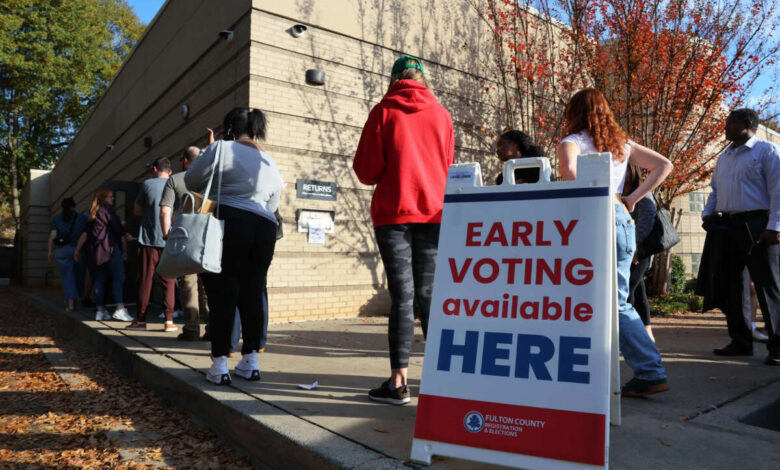2 Republican States May Manipulate Electoral College Outcome to Favor Trump

Changes to election rules in Georgia — and potential changes in Nebraska — could benefit Donald Trump. People wait in line for early voting for the midterm elections at Ponce De Leon Library on November 4, 2022, in Atlanta, Georgia. Two Republican-led states are demonstrating how the Electoral College can be gamed, in more ways than most voters realize (and even in the middle of a campaign season), in order for state lawmakers to boost their preferred presidential candidate — in this case, Donald Trump.
The Electoral College is set up so that it benefits states with smaller populations over larger ones, due to every state being guaranteed at least three Electoral College votes. This happens because electors are doled out based on how many congressional representatives a state has — every state in the U.S. gets two electors for their senators, plus one for every member of the House.
House districts across the country are determined by state populations, but no matter how many people live in any given state, they receive at least one House representative. That means a state like Wyoming, which has a population of around 580,000, receives three Electoral College votes (two for its senators and one for its lone House member), amounting to about one elector per 193,000 residents. California, meanwhile, has two senators and 52 representatives, giving the state 54 electors. With a population of around 38.9 million, that amounts to around one elector per 720,000 residents — meaning Wyoming’s voters have around 3.7 times more voting power than California’s.
This system is how Republican presidents, including Donald Trump in 2016 and George W. Bush in 2000, have been able to win the Electoral College (and thus the White House) without attaining the popular vote.
But the fragility of the Electoral College is now becoming evident in other ways, especially since states are able to decide for themselves how they want to distribute their votes among electors. Every state in the country does so through an election, with almost all of them awarding every electoral vote they have to whoever wins the statewide contest. However, two states — Nebraska and Maine — allow each congressional district to decide where they want their electoral vote to go, with the remaining two votes going to whoever wins the state overall.



